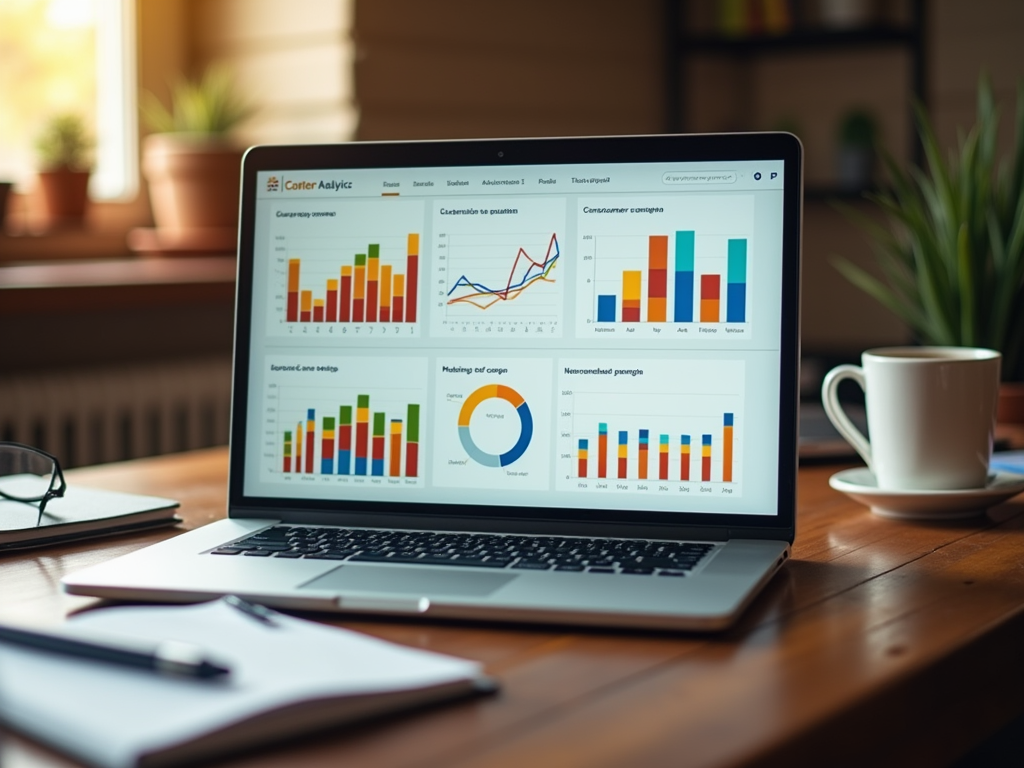
The integration of big data in marketing campaigns has revolutionized the way businesses engage with their customers and optimize their strategies. By leveraging large volumes of data from various sources, companies can make data-driven decisions that enhance their marketing efficiency, attract their target audience, and ultimately boost their return on investment. This article will explore the numerous benefits of using big data in marketing, including improved customer insights, personalized marketing strategies, enhanced campaign effectiveness, and more.
Improved Customer Insights

One of the most significant advantages of utilizing big data in marketing is the ability to gain in-depth customer insights. Through data analysis, marketers can better understand customer behaviors, preferences, and demographics. This understanding allows businesses to tailor their products and services to meet specific customer needs, fostering customer loyalty and enhancing brand reputation. Companies can gather data from various sources, including social media interactions, transaction histories, and website analytics. This rich pool of information provides actionable insights into:
- Buying habits and trends
- Customer pain points and needs
- Overall customer journey and engagement
With these insights, businesses can segment their audiences more effectively, ensuring that their marketing strategies resonate with the right customers at the right time.
Personalized Marketing Strategies

Another compelling benefit of employing big data in marketing campaigns is the ability to create highly personalized marketing strategies. By analyzing customer data, marketers can deliver tailored messages and offers that align with individual preferences. Personalized marketing goes beyond simply addressing customers by their names; it involves curating content and product recommendations based on user behavior and interests. Some practices include:
- Dynamic content creation for email campaigns that speaks to user preferences.
- Targeted ads that reflect customers’ browsing history.
- Recommendations that suggest complementary products based on previous purchases.
This level of personalization not only enhances customer experiences but also drives higher engagement and conversion rates, ultimately leading to increased sales and customer retention.
Enhanced Campaign Effectiveness
Big data allows marketers to optimize their campaign strategies for maximum effectiveness. By continuously analyzing real-time data from ongoing campaigns, businesses can identify what works and what doesn’t. This agile approach enables marketers to pivot quickly, reallocating resources towards high-performing tactics or adjusting underperforming strategies. Key aspects of enhanced campaign effectiveness through big data include:
- Real-time performance tracking
- Predictive analytics to forecast trends and behaviors
- A/B testing to refine marketing messages and channel strategies
With these data-informed adjustments, companies can increase the ROI of their marketing campaigns and decrease wasted spending on ineffective approaches.
Utilizing big data also fosters informed decision-making within organizations. The vast insights derived from data analytics empower marketers to substantiate their strategies with evidence rather than relying solely on intuition or past experiences. Data-driven decision-making involves:
- Analyzing campaign outcomes using key performance indicators (KPIs).
- Evaluating customer feedback and engagement metrics.
- Understanding competitive positioning through market analysis.
This comprehensive understanding equips businesses to make strategic decisions, from budget allocations to campaign launches, ensuring a proactive approach to market challenges and opportunities.
Conclusion
In conclusion, the benefits of leveraging big data in marketing campaigns are undeniable. From gaining deeper customer insights to crafting personalized marketing strategies and improving campaign effectiveness, big data empowers businesses to navigate the complex landscape of consumer preferences and market dynamics. As technology continues to evolve, so too will the importance of integrating big data into marketing strategies. Companies that embrace this paradigm shift will likely outperform their competitors, providing enhanced solutions and experiences to their customers.
Frequently Asked Questions
1. What is big data in marketing?
Big data in marketing refers to the vast amounts of structured and unstructured data generated from customers, businesses, and the market. Marketers use this data to analyze consumer behavior, optimize campaigns, and personalize customer experiences.
2. How does big data enhance customer targeting?
Big data enhances customer targeting by allowing marketers to segment their audience based on specific behaviors, preferences, and demographics. This segmentation leads to more relevant marketing messages and higher engagement rates.
3. Can small businesses benefit from big data?
Absolutely! Small businesses can leverage big data through affordable analytics tools and platforms to gain insights into customer behavior and market trends, helping them make informed decisions and optimize their marketing strategies.
4. What are some tools used for big data analysis in marketing?
Some popular tools for big data analysis include Google Analytics, Tableau, SAS, and Adobe Analytics. These tools help marketers visualize data, track performance, and derive actionable insights.
5. Is data privacy a concern when using big data for marketing?
Yes, data privacy is a significant concern when using big data. Marketers must adhere to regulations like GDPR and ensure that they handle customer data responsibly, maintaining transparency and securing user consent for data collection.




